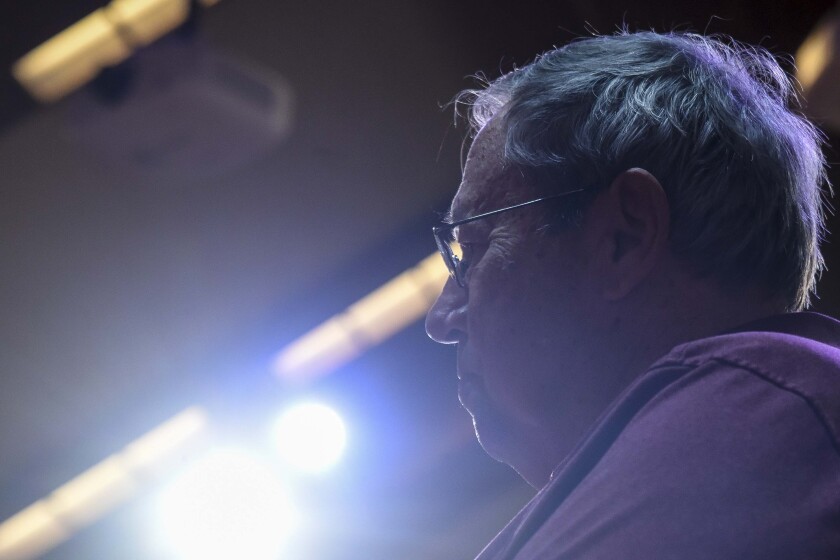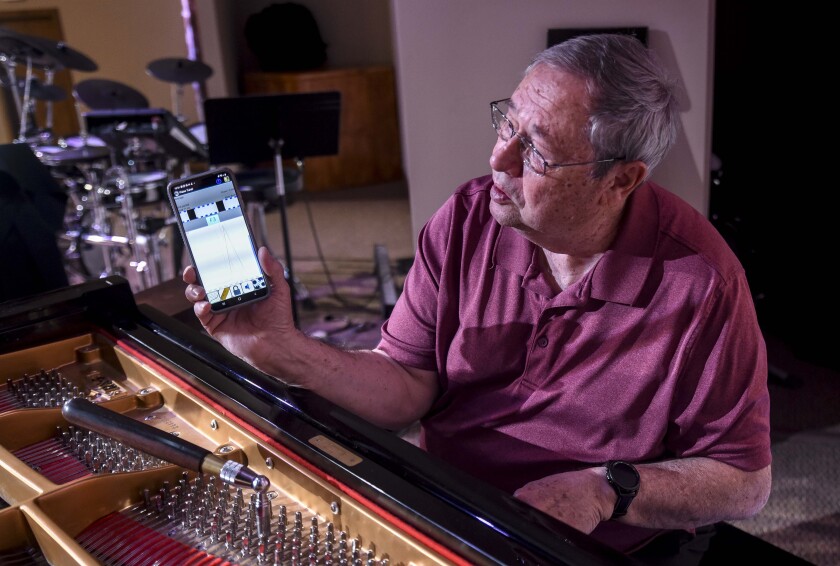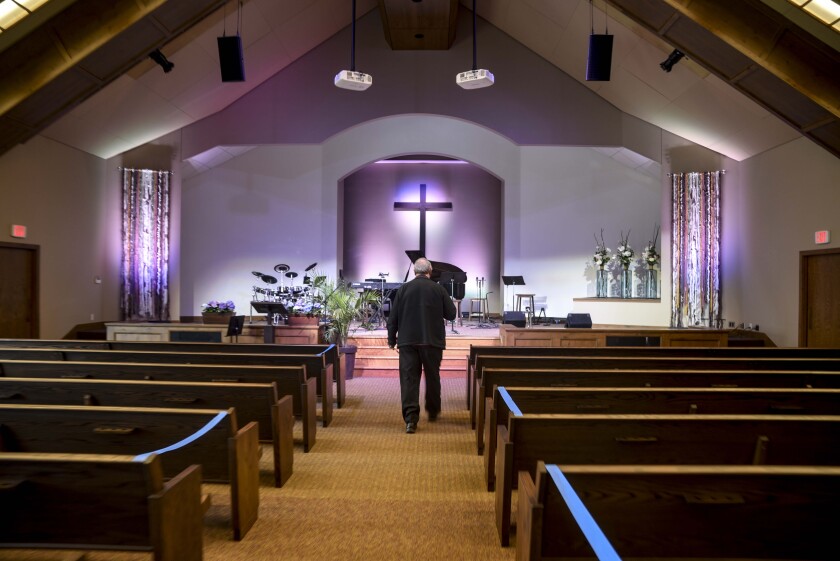WILLMAR — Dennis Benson has tuned pianos for celebrities including Loretta Lynn, Ronnie Milsap, Crystal Gayle and Wayne Newton prior to their concerts at regional venues.
One time, before a duet by guest musicians, Benson tuned their two pianos that had a combined value of a half-million dollars.
He’s also tuned hand-me-down family pianos for local students taking beginner lessons. Some pianos harbored mouse nests and dead mice and one time a mouse ran out from under the piano and scampered down the hallway.
No matter the value of the piano or who’s playing it, Benson’s goal is the same — to make that piano “sing” and bring joy to the person playing it and those listening to it.
He’s been doing it for 55 years and has no plans to stop.
ADVERTISEMENT

“It keeps me going at 72,” said Benson, who studied at the MacPhail School of Music the summer after he graduated from high school in 1966. He tuned pianos to help pay for his college tuition at Bemidji State University, where he graduated with a degree in music .
Benson continued his craft while in the Army in the 1970s, tuning pianos on U.S. bases in Germany. “They were all lousy pianos,” he said.
Benson — who said he prefers the term piano “technician” rather than piano “tuner” because he not only puts a piano in perfect pitch but also makes repairs to give pianos new life — has been performing his craft in Willmar ever since.
As far as he knows, he’s the only full-time piano technician from here to the South Dakota border to the west and Cokato to the east.
“It’s a pretty rare profession,” he said, especially in rural Minnesota.
Benson — who plays trombone, is the conductor for the Prairie Winds Concert Band’s summer series, is a web designer and is also an accomplished photographer who documents community events — doesn’t need to have a steady job tuning pianos. He said he does it because he loves the end product.
ADVERTISEMENT
“When it gets all sounding sweet and nice, it makes a difference to somebody,” he said. “Whether it’s the kid taking lessons or Lorie Line or Reba McEntire.”
'Boring job'
“It’s such a private life. Me and the piano,” said Benson, who confesses that the process of tuning a piano isn’t all that exciting.
Sitting at a piano for an hour “hearing ding, ding, ding, ding” is a “pretty boring job,” said Benson.
“I listened to a piano tuner tune a piano one time and it was the most excruciating thing I’ve ever done,” he said. “But when I’m at the piano doing it, it’s different.”
There’s a lot of knowledge, experience, expertise and patience behind those boring dings produced by hitting a piano key over and over.

“To learn the basics of how to tune a piano isn’t that hard,” he said. But “understanding all the nuances of manipulating the tuning hammer with the pins and how strings react” is an entirely different skill set.
ADVERTISEMENT
“You can take it to a level where it (the piano) sounds pretty decent or you can take it to that craftsman, artisan level where it just sings,” he said.
Benson carries a small case with a set of tools for tuning a piano, but his trunk is full of additional equipment in case he needs to make repairs.
With more than 10,000 moving parts, 230 strings that are under nearly 20 tons of tension, a soundboard made of quarter-sawn spruce and a cast iron frame that prevents the piano from “imploding,” Benson knows uprights, grands and spinets inside and out.
“In order to get to the artistic part you have to understand the mechanical part,” he said.
Benson said he’s only come across two pianos in 55 years that were too far gone to repair and tune.
When he started tuning pianos, Benson charged $10. His current rate is $100, which he said is well below the typical Twin Cities fare of around $150.
Tune up
Sitting at the grand piano in the Refuge Church in Willmar, Benson uses mutes to isolate the strings so he hears only one specific note. Without mutes wedged between the strings, the vibrations would create sounds that make it impossible to properly tune individual keys.
He has a tuning fork but prefers to use an app on his phone to fine-tune the pitch.
ADVERTISEMENT

It typically takes him 45-60 minutes to tune a piano, “depending on how the piano cooperates with me, how long it’s been since it’s been tuned and how good the piano is,” he said.
A performance piano like those in churches and schools are typically tuned four to eight times a year, or prior to a performance. Most home pianos are done once a year or “once every 10 years,” said Benson with a grimace.
“They should be tuned when it sounds bad, and sounding bad is a relative term,” he said.
Prior to the COVID-19 pandemic, Benson had a full schedule of tuning pianos in homes; most of the pianos in area churches, schools and community auditoriums in the region' and performers' pianos at Jackpot Junction Casino in Morton.
From November until Christmas Eve, Benson said would typical tune four to five pianos a day.
COVID slowed that pace because there were no concerts.
ADVERTISEMENT
However, online piano lessons by a local teacher helped bring him some new business during the pandemic.
Benson said a Willmar piano instructor began doing lessons via Zoom, and when she heard how awful her students’ pianos sounded, she advised them to call Benson for a tune-up.
Following COVID safety guidelines, Benson tuned at least a dozen pianos. Most hadn’t been tuned for years and some didn’t have working keys, he said.
Tips for piano owners
With regular tuning and ideal heat and humidity conditions in the church, Benson said the grand piano at the Refuge Church will last at least 300 years.

Ignore or mistreat a piano, and its history will be shorter.
“I just want people to take care of their pianos,” he said.
ADVERTISEMENT
Benson said pianos should not be placed near heat sources, like a vent or wood stove. “That’ll kill them,” he said.
Putting a piano by a window can be risky with temperature fluctuations. If the exterior of a piano is hot to the touch because of sunlight, it could affect the soundboard. Humidity also raises havoc on the tone of a piano.
Regular tuning is also key to the life of a piano. Keeping a piano tuned “makes all the difference in the world” and makes playing a piano more fun, he said.











